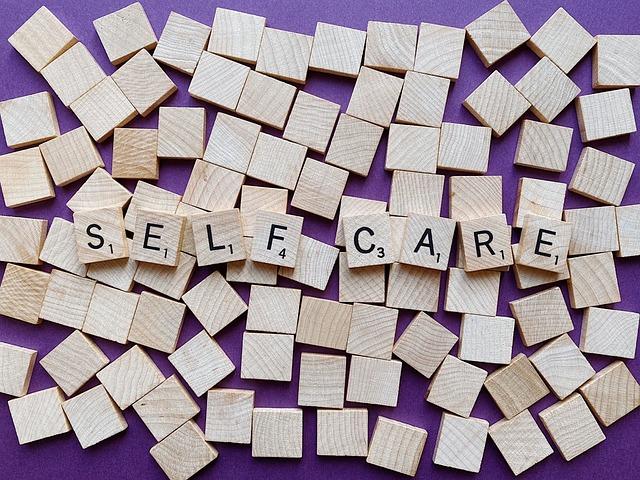In a nation rich with cultural heritage and resilience, the vibrancy of Pakistan’s landscape contrasts starkly with the unseen struggles faced by many of its citizens. From the bustling bazaars of Karachi to the serene valleys of Swat, the narrative of progress often overlooks the underlying social inequalities that permeate everyday life. These disparities, rooted in historical injustices and compounded by socio-economic challenges, manifest in various forms—education, healthcare, and access to resources—leaving marginalized communities grappling for their rightful place in a rapidly evolving society. This article delves into the nuances of these unseen struggles, bringing to light the voices often silenced by systemic barriers. As we explore the intricate web of social inequalities, we aim to illuminate the path toward a more equitable future for all Pakistanis, where every individual’s potential can flourish unencumbered by the weight of disparity.
Understanding the Roots of Social Inequality in Pakistan
Social inequality in Pakistan is deeply rooted in a complex interplay of historical, economic, and cultural factors. The legacy of colonialism has left an indelible mark, creating a stratified society where access to resources is often determined by one’s socioeconomic status, ethnicity, and geographic location. In urban areas, the stark divide between the affluent and the impoverished is evidenced by the contrasting living conditions, with high-end residential colonies sitting alongside sprawling slums. These disparities not only affect material wealth but also influence access to quality education and healthcare, perpetuating a cycle of poverty that is hard to escape.
Moreover, cultural norms and practices contribute significantly to social inequality. Gender roles often restrict women, limiting their participation in the workforce and their ability to contribute to economic growth. Ethnic minorities frequently face systemic discrimination, leading to their exclusion from political and social spheres. Additionally, the lack of educational opportunities for marginalized groups exacerbates these inequalities, making it difficult for them to break free from their circumstances. Addressing the roots of social inequality requires comprehensive policy reforms, community engagement, and a commitment to fostering an inclusive society that values diversity and equality.

Impact of Education Access on Economic Disparities
Access to education is a cornerstone in the battle against economic disparities. In Pakistan, where the social fabric is woven with intricate threads of tradition and modernity, the lack of educational opportunities for marginalized communities perpetuates a cycle of poverty. Quality education is often out of reach due to factors such as geographical remoteness, inadequate infrastructure, and socio-cultural barriers. Communities that cannot afford schooling for their children miss out on essential skills and knowledge, leading to reduced earning potential and job opportunities. This system creates a glaring disparity between those with access to education and those condemned to a life of limited prospects.
The economic divide is further amplified by the mismatch between educational programs and market demands. Many institutions fail to equip students with relevant skills, leaving graduates unprepared for the evolving job market. Consequently, underemployment becomes a common reality, particularly among youth. To illustrate this point, consider the following table, which highlights the correlation between educational attainment and income levels in Pakistan:
| Education Level | Average Monthly Income (PKR) |
|---|---|
| Primary Education | 10,000 |
| Secondary Education | 18,000 |
| Tertiary Education | 35,000 |
| Postgraduate Education | 60,000 |
This stark contrast emphasizes the urgent need for policy reforms and increased investment in accessible education systems that cater to all demographics. Without addressing these fundamental issues, efforts to reduce economic inequalities in Pakistan will remain superficial at best.

Health Care Gaps and Their Ripple Effects on Communities
In Pakistan, disparities in health care access are not merely statistics; they are woven into the very fabric of community life, affecting individuals in profound ways. Those living in under-resourced areas often face significant barriers, such as limited access to essential health services, inadequate medical facilities, and a shortage of trained professionals. These gaps can result in debilitating health conditions going untreated, leading to a cycle of poverty that is hard to escape. Moreover, this unequal distribution of health care creates a ripple effect, where the health of one individual or family can influence the well-being of the community as a whole, exacerbating existing social inequalities.
Furthermore, when communities lack adequate health care provisions, the impacts extend beyond physical health to encompass socioeconomic dimensions. The economic burden of untreated illnesses often falls disproportionately on marginalized families, eroding their financial stability. This situation fosters a range of societal issues, including increased school absences among children, decreased workforce productivity, and heightened mental health challenges. The lack of preventive measures and health education prolongs suffering and stifles upward mobility within these communities. Addressing these health care gaps is crucial not only for individual well-being but also for the overarching goal of social equity and community resilience.

Empowering Grassroots Movements for Sustainable Change
Grassroots movements have emerged as pivotal forces in the struggle against social inequalities in various regions, including Pakistan. These movements often operate from the ground up, driven by the passion and commitment of local communities. By mobilizing individuals around shared goals, they cultivate a sense of ownership and collective responsibility that instills genuine change. Empowerment through education, community organizing, and advocacy are essential strategies that enable grassroots leaders to confront systemic challenges. For instance:
- Education Initiatives: Workshops and seminars help elevate awareness regarding social issues.
- Community Empowerment: Local leaders foster collaboration among diverse groups to amplify voices.
- Advocacy Campaigns: Targeting policy changes that address poverty, discrimination, and gender inequality.
In parallel, the role of technology cannot be underestimated in bolstering these movements. Digital platforms facilitate outreach, allowing activists to connect, share resources, and coordinate efforts across vast distances. As social media campaigns gain traction, they effectively highlight the unseen struggles facing marginalized communities, fostering a ripple effect that encourages broader participation. Meanwhile, partnerships with NGOs and international organizations often provide essential resources, enhancing the sustainability of these grassroots efforts. The following table illustrates the impact of such collaborations:
| Collaboration Type | Impact Area | Outcome |
|---|---|---|
| Local NGOs | Community Health | Improved Access to Services |
| International Bodies | Policy Reform | Increased Funding Opportunities |
| Academic Institutions | Research and Data | Evidence-Based Advocacy |
Final Thoughts
As the sun sets over the diverse landscapes of Pakistan, it casts long shadows that reveal the hidden struggles faced by millions each day. While the vibrant tapestry of Pakistani culture is often celebrated, it is essential to peel back the layers and confront the social inequalities that persist beneath the surface. The stories of resilience and perseverance serve as a testament to the human spirit, yet they also highlight the urgent need for collective action and awareness.
Addressing these unseen struggles requires a holistic approach, one that encompasses education, policymaking, and grassroots movements, fostering an environment where every individual has the opportunity to thrive. As we move forward, let us remember that change is not solely the responsibility of the few; it is a shared endeavor that demands the input and commitment of all sectors of society.
In recognizing the intricacies of social inequalities, we can work towards a Pakistan where equity replaces disparity, and every voice resonates within the chorus of progress. Ultimately, it is only through understanding and empathy that we can illuminate the path toward a more just future—a future where no struggle remains unseen.



